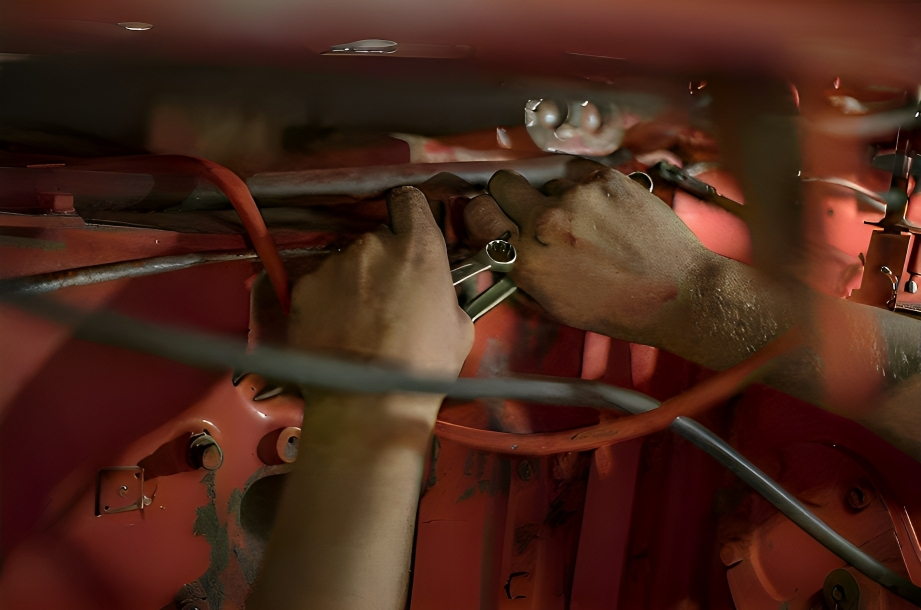An Insight Into Mobile Repairs With Electroworx
Car servicing is essential for the healthy maintenance of the vehicle used for transportation. This means that a truck and trailer also need maintenance and care, as oversized vehicles sometimes transport goods from one location to another.
When the trailer’s suspension is off, it can cause drag and decrease the vehicle’s fuel economy, which can negatively impact productivity and profitability. The suspension system in a truck is complex, and many areas of potential failure, shocks, springs, struts, control arms, and more need to be maintained and repaired periodically.
Damaged suspension components may cause damage to other members. Many types of suspension damage can cause damage to the steering ability of the driver. Different types of suspension damage can cause damage to the wheels or tires, which can also be repaired relatively quickly but will add considerable expense.
For trailers that receive heavy, daily use (such as commercial or plant), it is recommended that a service is carried out once every six months or so. An annual benefit is usually sufficient when trailers receive less frequent or prolonged use. There are some features that manufacturers recommend checking more often. These features include wheel torque, tire pressure, and breakaway functionality.
How often should a trailer be serviced?
Monthly – Once per month, inspect and service the trailer for:
- Lubrication – Lubricate gate and door hinges if your trailer is equipped.
Every Six Months – Inspect and service the following areas:
- Electric brakes (magnet and operation)
- Electric brakes (controller in tow vehicle)
- Tyres
- Surge brakes
- Brake shoes and drums
- Safety chains and hooks
- Coupler
- Ring and pintle
- Wheel bearings
Annual – Make sure to check the following:
- Brake shoes and drums (all types)
- Jack, drop-leg (if equipped)
- Structure frame members
- Structure welds
- Wheel bearings
- Wheel rims
- Axle attachment bolts
- Brake wiring
An adequately maintained trailer will serve the driver well for many years and make for a safer haul each time it gets towed. Regular trailer maintenance is critical to ensuring the trailer’s longevity and ensuring it is towed to any destination safely. Worn or broken trailer parts can cause loss of control, resulting in injury. After any accident or impact, it is essential to have the trailer professionally inspected.
Minimum maintenance depends on the trailer usage, including cargo weight and kilometres travelled, and the environmental factors where the trailer is used.
What type of maintenance needs to be done on a trailer? Here’s a checklist:
While most vehicles have done away with external grease points such as self-adjusting brakes, lubed-for-life wheel bearings, and other features, most trailers don’t have these same things. That means if one doesn’t keep up with the service intervals on their trailer, they’ll run into problems in no time!
- Brakes and Bearings: Brakes should be tested to ensure they are in good operating condition every time the trailer is used. Check for cracked brake pads, inspect brake linings for wear or contamination, check leaks or sticking, rust and water deposits.
- Electrical Components: With the trailer hooked up, turn the lights on and make an inspection tour to determine that the running lights are illuminated. Have someone step on the brake pedal and activate turn signals to confirm their functionality.
- Breakaway System: For trailers with brakes, federal law requires that any trailer be equipped with a functioning breakaway system. Test the battery annually to ensure it’s in operating order, using a voltmeter or simply pulling the plunger.
- Couplers and Jacks: A yearly inspection to identify excessive wear is recommended because of the friction created during operation. Consider greasing the inside of the coupler so that the hitch ball has some lubrication.
- Tires and Wheels: Tires should be inflated to the manufacturer’s specifications, maintaining optimal pressure to reduce rolling resistance and fuel consumption. Inspect tires for cuts, wear and bulging every three months or 3,000 miles. Wheels should be inspected for cracks, dents or distortion.
- Battery: Test the trailer’s battery annually with a hydrometer to measure the liquid in the cells. Most auto parts stores will perform the battery test as a free service.
- Safety Chains: Check to ensure that these haven’t drug on the ground or worn through and are correctly fastened.
Make sure that the trailer’s registration is current! Now you’re ready for the road, confident that your trailer is, too.
Contact us for more information on maintaining your trailer or better yet, get in touch with us for an affordable check-up and service today!


 1300 824 692
1300 824 692




